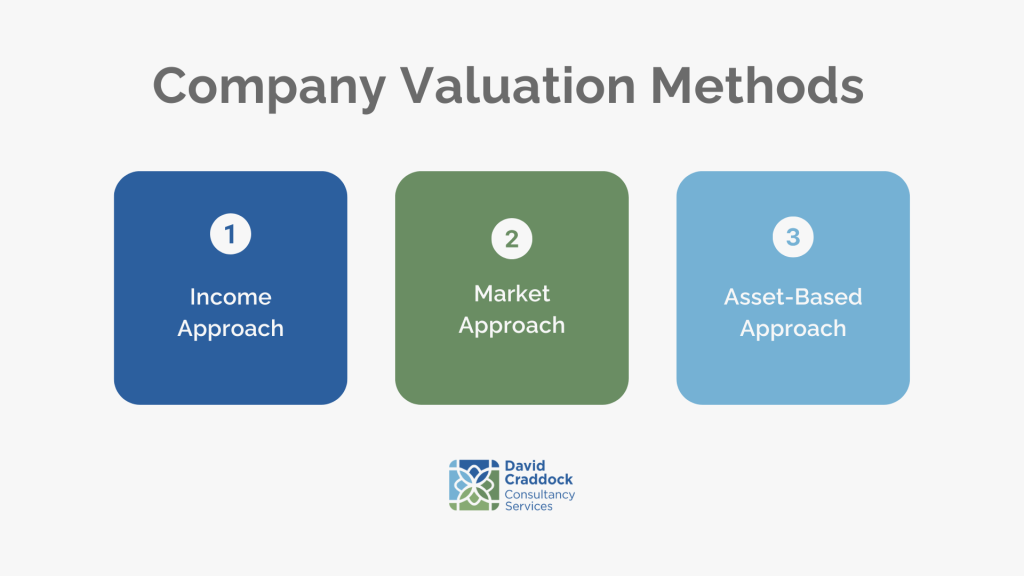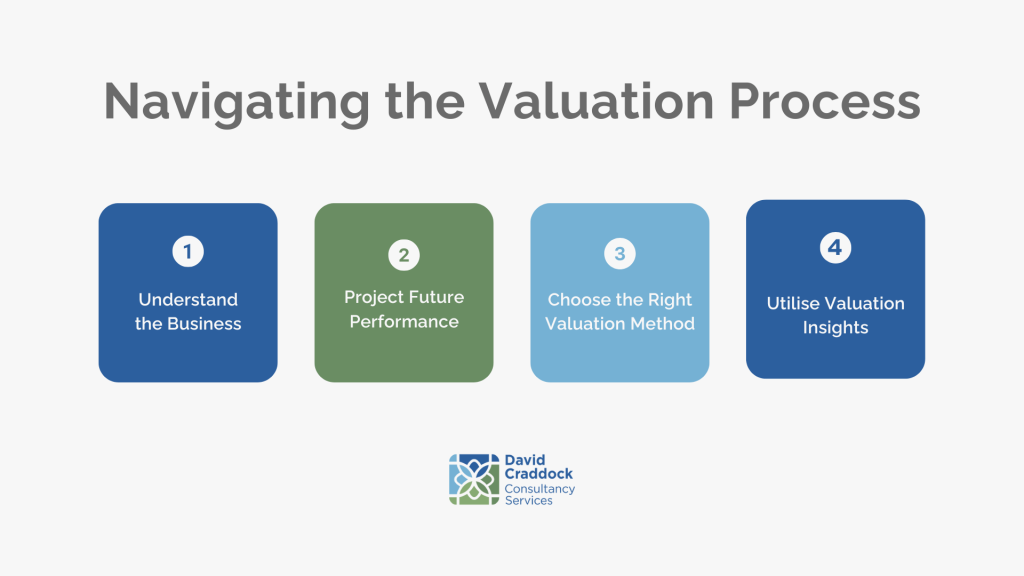With finance and investment, one of the most critical tasks is determining the value of a company. This is where company valuations come in. Whether you’re an investor seeking lucrative opportunities or a business owner aiming to understand your worth, company valuations are the compass that guides decision-making.
Understanding company valuations requires analysing various methods, such as discounted cash flow (DCF), comparable company analysis, and precedent transactions, while also factoring in financial performance, industry trends, and risk considerations.
In this guide, we will learn about company valuations, how to determine your company’s worth, and factors that influence valuations.
Related Links: Share Valuations
Related Links: DC Valuation Services
Related Links: The Share Valuation Implications for Employee Share Scheme
Understanding Company Valuations:
At its core, company valuation is the process of determining the economic value of a business. It’s akin to peering through a multifaceted lens, considering both quantitative metrics and qualitative factors to arrive at a fair and reasonable estimate of a company’s worth.
While the ultimate goal is to arrive at a single figure, business valuation is more of an art than a science, incorporating elements of financial analysis, market dynamics, and subjective judgment.
Company Valuation Methods:
To value a company, you can use methods such as the Market Approach (comparing similar businesses), the Income Approach (analysing future cash flows), or the Asset-Based Approach (calculating net asset value), depending on the industry, financial performance, and market conditions.
These approaches exist for valuing companies, each with its unique strengths and limitations. Some of the most commonly used company valuation methods include:
Income Approach:
This method assesses the present value of a company’s future income streams, often using discounted cash flow (DCF) analysis. By forecasting future cash flows and discounting them back to their present value, investors can gauge the company’s earning potential and assign a valuation accordingly.
Market Approach:
Comparing the target company to similar publicly traded companies or recent transactions in the same industry forms the basis of the market approach. Common metrics include price-to-earnings (P/E) ratios, price-to-sales (P/S) ratios, and enterprise value multiples.
Asset-Based Approach:
Here, the focus is on the company’s balance sheet and the value of its tangible and intangible assets. Asset-based valuation methods include book value, liquidation value, and replacement cost.
Factors Influencing Company Valuations:
A myriad of factors can influence a business valuation, making it a dynamic and nuanced process. Some key considerations include:
✔️ Financial Performance: Examine revenue, earnings, profit margins, and debt levels to assess overall stability.
✔️ Industry Dynamics: Analyse growth potential, competitive positioning, and emerging market trends.
✔️ Business Risk: Evaluate revenue stability, customer diversification, and industry volatility.
✔️ Market Conditions: Factor in economic trends and investor sentiment influencing valuation.
✔️ Growth Prospects: Assess future expansion opportunities and profitability potential.
✔️ Management Team: Review leadership experience, strategic vision, and operational expertise.
✔️ Intellectual Property: Determine the value of patents, trademarks, and proprietary assets.
Valuing Public vs. Private Companies
✔️ Public Companies: Typically valued based on market capitalisation, calculated as the total value of outstanding shares.
✔️ Private Companies: Valuation is more subjective, often requiring a blend of methods that account for financial performance, industry trends, and growth potential.
The Significance of Company Valuation:
Company valuation serves as a cornerstone for various stakeholders, offering invaluable insights and driving strategic decisions.
For investors, it aids in identifying undervalued assets and assessing investment opportunities.
Business owners leverage valuation to attract investors, negotiate mergers and acquisitions, or make informed decisions regarding capital allocation and growth strategies.
Industry-Specific Factors in Company Valuation
Business valuation methods vary significantly across industries due to differences in revenue models, asset structures, and market dynamics:
Technology Companies:
Often valued based on growth potential, intellectual property (IP), and recurring revenue models. Investors focus on metrics like user base growth, software scalability, and patent portfolios. The Discounted Cash Flow (DCF) method is common, as future earnings potential is a key driver.
Manufacturing Firms:
Typically valued based on tangible assets, production efficiency, and EBITDA multiples. The Asset-Based Approach may be used, as physical assets like equipment and inventory play a critical role in determining company worth.
Retail & Consumer Goods:
Valuations often consider brand value, customer loyalty, and market positioning. Methods like Comparable Company Analysis (CCA) can be useful by comparing revenue multiples with similar publicly traded companies.
Financial Services:
Banks and insurance firms are often valued based on net asset value, interest income, and regulatory capital requirements. Price-to-earnings (P/E) and price-to-book (P/B) ratios are commonly used.
Healthcare & Biotech:
Valuations depend on drug pipelines, FDA approvals, and research milestones. The success of a single product can significantly impact valuation, making risk-adjusted NPV (Net Present Value) a preferred method.
Navigating the Valuation Process
✔️ Understand the Business: Deep dive into the company’s operations, strategy, and market position.
✔️ Project Future Performance: Create realistic forecasts for cash flows and earnings.
✔️ Choose the Right Valuation Method: Select the most suitable approach based on the company’s characteristics and valuation objectives.
✔️ Utilise Valuation Insights: Apply the findings to support strategic decision-making.
Common Challenges in Company Valuation
-
Over-Reliance on Historical Data
-
Challenge: Valuations often depend too heavily on past financial performance, which may not reflect future potential.
-
Solution: Incorporate forward-looking indicators like market trends, industry shifts, and innovation potential.
-
-
Ignoring Market Conditions
-
Challenge: Economic downturns, inflation, and investor sentiment significantly impact valuation, yet they are sometimes overlooked.
-
Solution: Adjust valuation assumptions based on macroeconomic trends and conduct scenario analysis to model different market conditions.
-
-
Using a One-Size-Fits-All Approach
-
Challenge: Applying the same valuation method across all businesses can lead to inaccurate results.
-
Solution: Select valuation techniques based on the company’s industry, growth stage, and asset structure.
-
-
Underestimating Intangible Assets
-
Challenge: Brand value, intellectual property, and goodwill are often difficult to quantify but can contribute significantly to valuation.
-
Solution: Use qualitative assessments and market benchmarks to assign value to intangibles.
-
-
Failure to Consider Competitive Landscape
-
Challenge: A company’s position relative to competitors can affect valuation, but this factor is sometimes neglected.
-
Solution: Use Comparable Company Analysis (CCA) to benchmark against industry peers and assess competitive strengths.
-
Final Words from Company Valuation Specalists
Within finance and investment, company worth remains a fundamental practice, guiding stakeholders through the maze of opportunities and risks.
By understanding the methodologies, factors, and implications of valuation, investors and business owners can navigate with confidence, charting a course towards sustainable growth and prosperity in the dynamic seas of the market.
Ready to navigate the intricacies of company valuations? Get in touch today.
FAQS on Company Valuations
Q1: What is a company valuation?
A company valuation is the process of determining the economic value of a business, considering factors like financial performance, market conditions, and assets.
Q2: Why are company valuations important?
They are crucial for various purposes, including mergers and acquisitions, investment analysis, and strategic planning.
Q3: What methods are used in company valuations?
Common methods include the Income Approach (e.g., DCF analysis), Market Approach (e.g., comparable company analysis), and Asset-Based Approach.
Q4: How often should a company be valued?
Regular valuations are recommended, especially during significant business changes or market shifts.
Q5: Can I perform a company valuation myself?
While basic valuations can be done internally, professional advice ensures accuracy and compliance with relevant standards.


